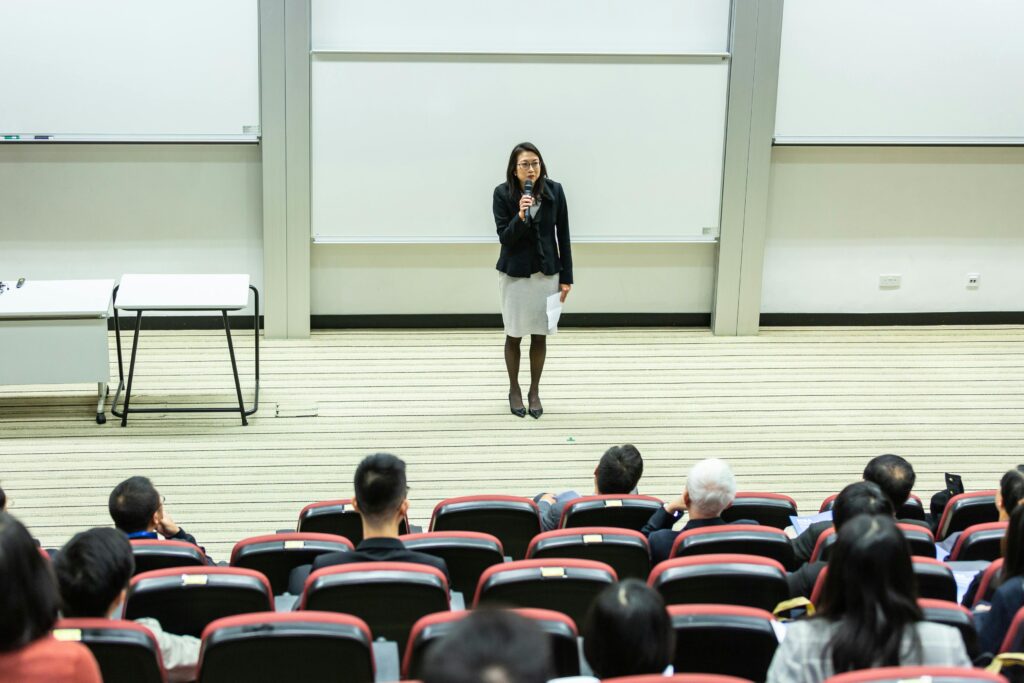A Rhetorical Analysis of Amy Tan’s “Mother Tongue” and Weike Wang’s “Notes on Work”
Amy Tan, a Chinese American author, writes about how her mother experienced discrimination due to her limited English in her personal essay “Mother tongue”. She brings the complex relationship between language and identity, showing people treated her mother unfairly because of the way she spoke. Similarly, Weike Wang, also a Chinese American author, writes about her experience as an Asian woman working twice as hard to fit into society and the workplace in her craft essay “Notes on Work”. She examines the struggles Asian women face adjusting into the workplace. Both of the authors belong to Chinese backgrounds, the commonalities between the essays are they both bring the struggles of being an Asian-American in places where they feel criticized or taken for granted.
The intended and extended audience for Amy’s essay “Mother Tongue” is the people who criticize and judge her mother’s broken English, as well as English speaking Individuals . She wants to reach those people who criticize her mother’s “limited” English in daily life. “And I had plenty of empirical evidence to support me: the fact that people in department stores, …or even acted as if they did not hear her.”, she shows that her mother was facing injustice because of using her “broken” English. “And sure enough, the following week… was shouting at his boss in her impeccable broken English”. Tan points out her mother’s may seem broken, but it is still understandable. Meanwhile for Weike’s essay “Notes on Work” is the Asian-American women and other minorities in the workplace, as well as young professionals and general readers. “The working Asian American is often expected to … devoid of personality.”, she portrays the unfair treatment faced by Asian American as they are expected to be workaholics and prioritize productivity. “ To hire one of us… not really seen as people”. Wang highlights how this stereotype leads to lack of recognition, making them feel invisible despite their hard work. The audiences for “Mother tongue” and “Notes on Work” are different. Tan writes for who criticizes limited English speakers, English speakers and immigrants, while Wang targets Asian American professionals, mainly women, to critique workplace biases and expectations.
Amy’s piece assured everyone that her mother’s English seems “broken” ; it does not reflect her intelligence as she brings through the specific text, “She reads the Forbes report, listens… I can’t begin to understand”. “ I think my mother’s English … shaping the language of the child.”, as Amy realizes that how a family communicates is very essential, especially for immigrant families who play a crucial role for a child’s growth. Tan changed her major from pre-med to English and later became a fiction writer. She celebrates the fact that she did not follow expectations that people had, she shows “But it wasn’t until…over the English language”. While in Weike’s piece she writes, “A model-minority label…discounts individuality.” highlighting how this stereotype portrays Asian-American as extremely hard-working by discounting comfort. “In writing classes,…. fewer people of color and immigrants.” showing only a few “model-minority” take writing classes. “Mother Tongue” by Amy Tan focuses on language discrimination and how non-native English speakers are often unfairly judged and “Notes on Work” by Weike Wang focuses on the pressures of the model-minority myth and expecting higher from Asian-American in respective settings.

The purpose of “Mother Tongue” is to highlight the hardships of non-native English speakers and immigrants. She crafts how language impacts on individuality and viewpoint. Meanwhile “Notes on Work” exposes how work affects people’s emotions, identity and relationships. She pursued two degrees and worked five jobs at the same time to reach the expectations imposed on her as she writes,”My closest friends and relatives…that I work and I don’t”. Amy Tan and Weike Wang have different goals but share a similar agenda of challenging society’s expectations. Both authors are challenging stereotypes and encouraging to embrace their identities.
As an Asian immigrant, I relate to both authors’ experiences. English is my second language, I understand the discrimination Tan’s mother faced. Similarly, Weike shows the image of “model-minority”, I can relate as I am often expected to excel in academics and work without struggle. Both essays highlight ongoing issues as language discrimination and workplace biases, encouraging a deeper conversation about identity, expectations, and freedom.

